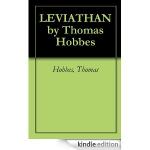
|
| Name: _________________________ | Period: ___________________ |
This test consists of 5 multiple choice questions, 5 short answer questions, and 10 short essay questions.
Multiple Choice Questions
1. Who does Hobbes say can never be excommunicated?
(a) a judge
(b) an ecclesiastical
(c) a sovereign
(d) a woman
2. What did the Jews do with the concept of demons they got from the Greeks?
(a) They used demons to scare and discipline their children.
(b) They got rid of the good ones and believed that all demons were bad.
(c) They started the saying that a demon made them do bad things.
(d) They rejected the idea of demons altogether.
3. What does Hobbes call a crime?
(a) a sin that obeys an unjust law
(b) a sin which consists of doing what is forbidden by law
(c) a sin which is intended whether committed or not
(d) a sin that is done in the darkness
4. What must punishment focus on?
(a) correction and not revenge
(b) making the subject feel happy
(c) not making the punishment fit the crime
(d) capital and non-capital methods
5. What is the end result of worshiping?
(a) mental exercise
(b) showing superiority
(c) hole in the knees of trousers
(d) giving someone power
Short Answer Questions
1. What example does Hobbes give as a crime that is not a crime?
2. How does Hobbes say inspiration is used in Scripture?
3. What does Hobbes identify as security against all evil, sickness, and death?
4. How does Hobbes define punishment?
5. In discussing a Christian Commonwealth, what does Hobbes have to say about Holy Scriptures?
Short Essay Questions
1. What power does the sovereign have over the church according to Hobbes?
2. What is Hobbes' position on crime and personal survival?
3. What is Hobbes' opinion of philosophy?
4. What is a leader supposed to do in addition to establishing punishments?
5. How does Hobbes define a prophet?
6. What does Hobbes say happens to one who does not believe in God?
7. What does Hobbes have to say about the desire for absolute power?
8. How does Hobbes define a church?
9. What does Hobbes conclude about the Scriptures?
10. What is Hobbes' idea about honoring God?
|
This section contains 769 words (approx. 3 pages at 300 words per page) |

|




